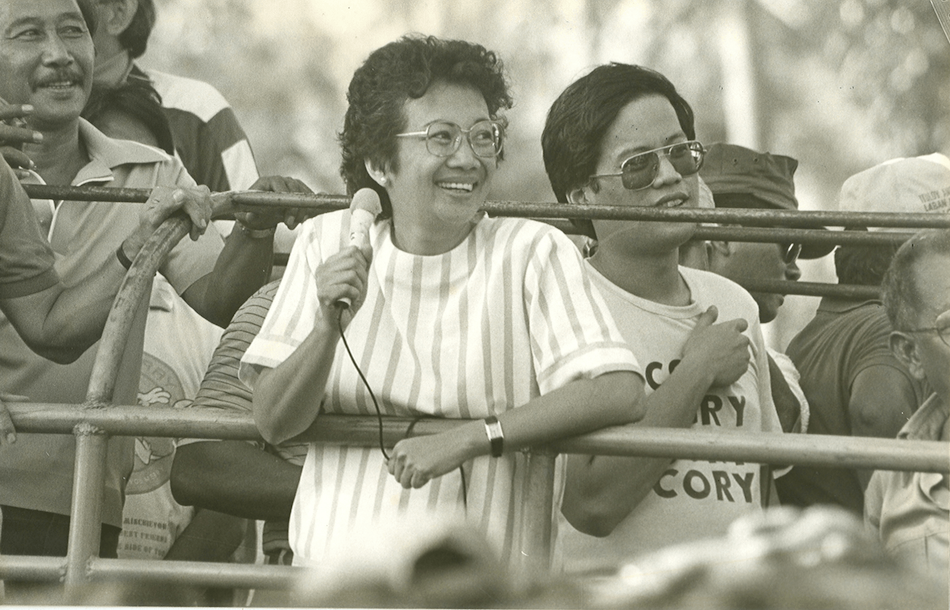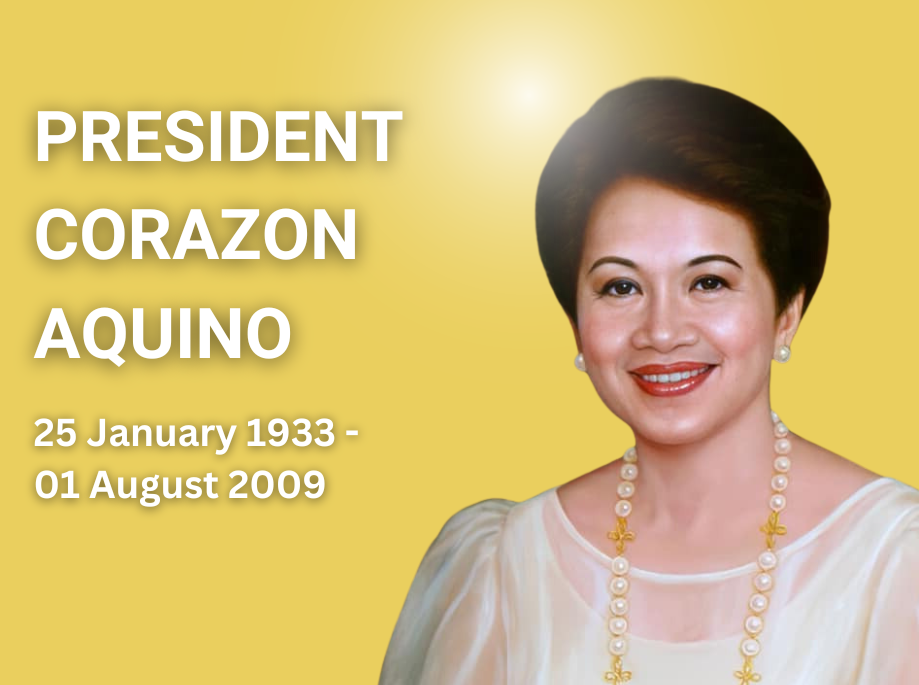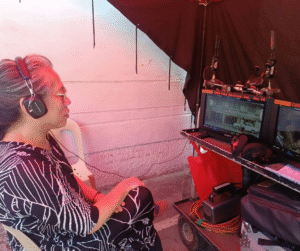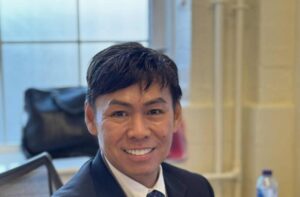Corazon Aquino, also known as “Cory Aquino,” was the first female president of the Philippines. She was born on 25 January 1933 in Tarlac, Philippines and passed away on 1 August 2009. Her political journey began in 1983 when her husband, Benigno “Ninoy” Aquino Jr, a prominent opposition leader, was assassinated upon his return to the Philippines after years of exile. This event fuelled widespread discontent against the authoritarian regime of then-President Ferdinand Marcos.
Often described as the “Mother of Philippine democracy,” Mrs Aquino insisted that it was the Filipino people who restored freedom in the Philippines. In 1986, following allegations of electoral fraud in the snap presidential elections, Mrs Aquino became the unifying figurehead of the opposition movement. She ran as the presidential candidate, representing the United Nationalist Democratic Organization (UNIDO), and her platform centred on restoring democracy, promoting human rights, and fighting against corruption.
The People Power Revolution, a non-violent and popular uprising, took place in February 1986. Millions of Filipinos poured onto the streets of Metro Manila to support Aquino and demand the resignation of President Marcos. The military withdrew support from Marcos, and he eventually fled the country, leading to the end of his 20-year authoritarian rule.

Corazon Aquino was inaugurated as the 11th President of the Philippines on February 25, 1986.
Among her administration’s achievements focused on strengthening education and the role of women in Philippine society. The following laws and policies were enacted during her time: free and compulsory secondary education for all, the ratification of the new Family Code which abolished provisions which discriminated against women in the Civil Code of the Philippines, the entry of women to the Philippine Military Academy, and the constitutional provision which allowed Filipino women who married foreigners to retain their citizenship.
As president, Mrs Aquino faced numerous challenges, including a country in economic crisis, political instability, and attempts to overthrow her government. She championed democratic reforms, human rights, and promoted civil liberties.

Despite facing several coup attempts, President Aquino’s commitment to democracy and her popularity among the Filipino people helped her maintain her position until the end of her term in 1992. She declined to seek re-election, and Fidel V. Ramos succeeded her as president.
Corazon Aquino’s legacy continues to be celebrated in the Philippines and around the world. She is remembered as an icon of democracy, an advocate for peace, and a symbol of hope and courage in the face of oppression. Her leadership and the success of the People Power Revolution have inspired similar movements for democracy and social justice in other countries.













